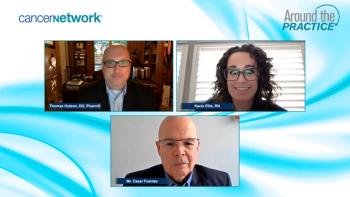
Mr. Cesar Fuentes had a kidney tumor surgically removed; lymph node and bone metastases years later led to immune and targeted therapy which have provided significant tumor shrinkage and generally mild, manageable side effects.

Your AI-Trained Oncology Knowledge Connection!


Mr. Cesar Fuentes had a kidney tumor surgically removed; lymph node and bone metastases years later led to immune and targeted therapy which have provided significant tumor shrinkage and generally mild, manageable side effects.
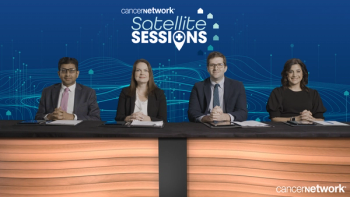
The panel discusses the effect minimal residual disease (MRD) has on treatment selection and provides insights on the treatment of younger patients with standard risk.
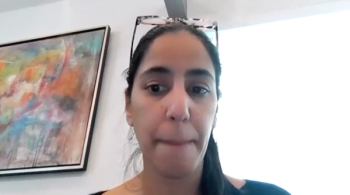
Despite the addition of a TIGIT inhibitor to a checkpoint inhibitor resulting in high levels of safety, there is no future for that combination alone, according to Ritu Salani, MD.

Expert perspectives on the practical applications of consolidation and maintenance therapies for patients with multiple myeloma.
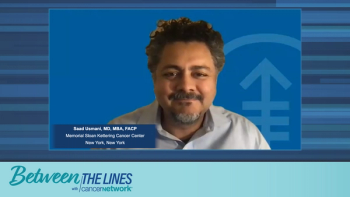
The expert panel provides an overview of relapsed/refractory multiple myeloma, with a focus on current therapeutic options and unmet needs in the treatment space.
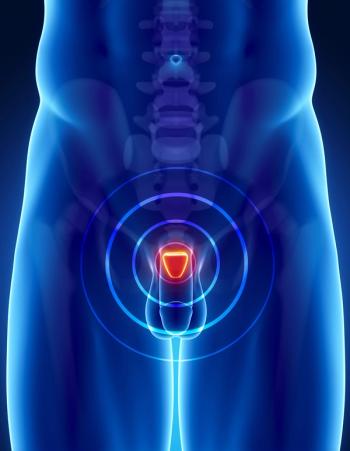
Including minority populations in clinical trials can be most easily done through outreach and partnerships with other health centers, according to Adam B. Murphy, MD, MBA, MSCI.
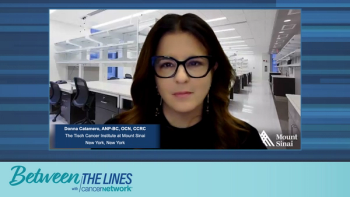
A nurse practitioner and two hematologic oncologists outline diagnosis and staging practices for patients with multiple myeloma.
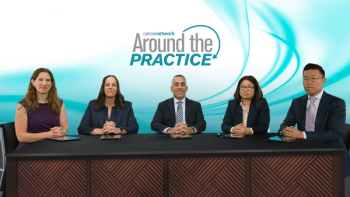
Dr Stacy A. Cohen discusses the DESTINY-CRC01 trial investigating trastuzumab deruxtecan in patients with colorectal cancer, specifically addressing the use of a targeted therapy for HER2 in colorectal cancer patients, highlighting the importance of prior therapy history and optimal dosage to balance efficacy and toxicity.

Tanios S. Bekaii-Saab, MD, presents the case of a 64-year-old woman with HER2+ colorectal cancer to the panel for discussion.
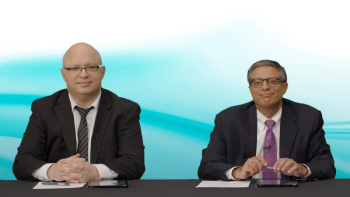
Leading experts discuss the evolving landscape of myeloma immunotherapy, highlighting the potential of CAR-T and bispecifics and emphasizing the need for effective management of related toxicities to enhance patient outcomes.
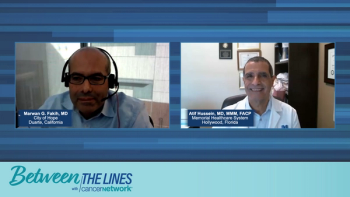
Experts on colorectal cancer provide their key takeaways from the results from the SUNLIGHT study.

A comprehensive review of outcome data from the SUNLIGHT clinical trial in patients with refractory metastatic colorectal cancer.
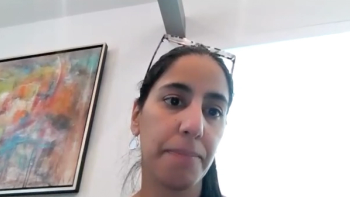
The addition of a TIGIT inhibitor to a checkpoint inhibitor showed numerical improvement but did not show statistical significance in patients with recurrent cervical cancer, according to Ritu Salani, MD.
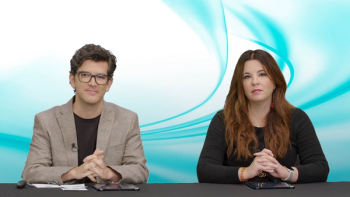
Explore the critical aspects of counseling patients on the expectations and management of cytokine release syndrome (CRS) and immune effector cell-associated neurotoxicity syndrome (ICANS) associated with CAR-T therapy.
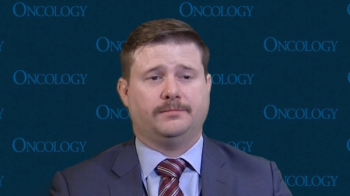
Surgery after neoadjuvant immune checkpoint inhibitor therapy for renal cell carcinoma is safe even in challenging surgical cases, according to Jason Scovell, MD.
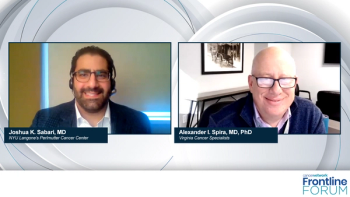
Alexander I. Spira, MD, PhD, and Joshua K. Sabari, MD, conclude their discussion with key takeaways on the evolving treatment of patients with NRG1 fusion–positive malignancies.

The expert panel discusses NRG1 fusions in pancreatic cancer and the potential role of zenocutuzumab as a therapeutic option.

Alexander I. Spira, MD, PhD, and Joshua K. Sabari, MD, discuss ongoing clinical trials focused on NRG1-targeted therapies.

Clinical insights on the diagnosis of NRG1 fusions in patients with non–small cell lung cancer.

Medical oncologists review testing practices for NRG1 fusions for patients with pulmonary or gastrointestinal malignancies.
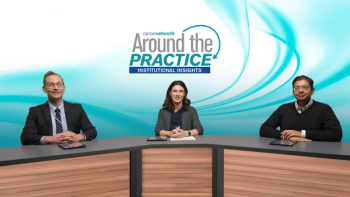
Closing insights into managing EGFR-mutant NSCLC, from evolving treatment options and sequencing strategies to addressing unmet needs and the importance of comprehensive genomic testing.
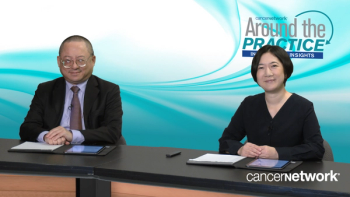
Dr Sai-Hong Ou discusses the future of treatment for non-small cell lung cancer with EGFR exon 20 insertion mutations, highlighting the complexity of these mutations and the need for precision treatments.

In closing, experts share clinical pearls on open communication with patients, dose reduction strategies, and the relevance of treatment holidays for improving quality of life in patients with renal cell carcinoma.

Alexander I. Spira, MD, PhD, and Joshua K. Sabari, MD, discuss the prevalence of NRG1 fusions in pulmonary and gastrointestinal solid tumors and provide an overview of treatment practices.

Unmet needs in EGFR exon 20 insertion lung cancer, emphasizing the importance of early identification, selectivity against wild type EGFR, CNS activity, and mechanisms of resistance.
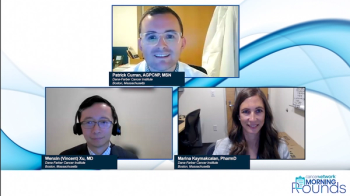
Panelists discuss the dosing schedule and patient education related to tivozanib, along with indications for potential treatment switch based on toxicity management and patient well-being.
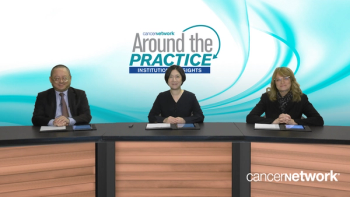
Drs Misako Nagasaka, Sai-Hong Ou, Janellen Smith discuss the management of adverse events, such as infusion reactions and rash, associated with amivantamab treatment for patients with EGFR exon 20 insertion mutations.
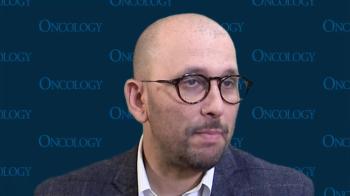
It is important not to wash over the disparities in treatment access for renal cell carcinoma as merely another statistic and take action on guiding patients to treatment, says Solomon Woldu, MD.

African American and Hispanic patients with clear cell renal cell carcinoma may be less likely to receive treatment with immune checkpoint inhibitors than White patients, says Solomon Woldu, MD.
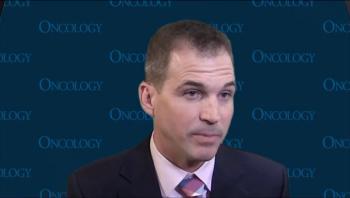
Cretostimogene grenadenorepvec’s efficacy compares favorably with the current nonsurgical standards of care in high-risk, Bacillus Calmette Guerin–unresponsive non-muscle invasive bladder cancer.